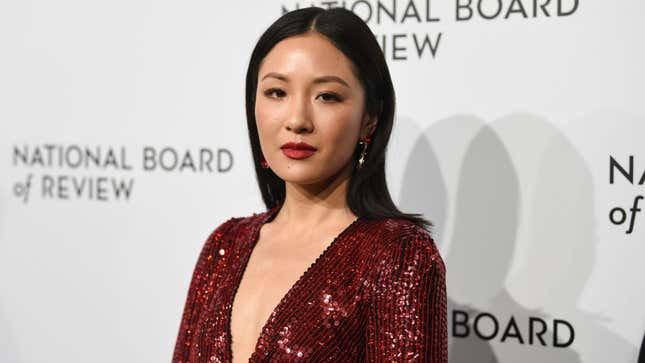For Constance Wu, Representation Was a Trap
In her new memoir Making A Scene, Wu describes a toxic showrunner on Fresh off the Boat who weaponized representation—even though he was also Asian American.
In DepthIn Depth

In her memoir Making a Scene, which is out today, actor Constance Wu details her experiences of workplace harassment and sexism during her time on Fresh Off the Boat—things she hinted at during an appearance last month at the Atlantic Festival. At the event, Wu told the story behind what drove her to write the 2019 tweetstorm that turned the public against her, which eventually led to a suicide attempt. Now, in Making A Scene, Wu dives even deeper into the topic, revealing how the pressure of onscreen Asian American representation was manipulated into a tool of control by those who had power over her.
In the chapter “You Do What I Say,” Wu discusses her many interactions with a senior producer, whom she identifies only as M—, while filming the first season of the show, which range from uncomfortable to downright violating. Since FOTB was her first major television job after years of minor roles in theater and TV, Wu was unfamiliar with many Hollywood norms, including who would handle her business matters, what she should wear, and what promotional work she was contractually obligated to do, which was a weakness that M— took advantage of.
He subjected her to constant sexual harassment: badgering her for “sexy” selfies late at night, pressuring her to attend social events with him, and even touching her inappropriately at a sporting event. When she didn’t act the way he wanted her to, M— would either insult her; subject her to long moments of “punitive silence;” or make off-handed comments that made her feel bad about herself (“No, you know what? It’s good that you have big arms. It means you’re strong. Strong women are great. Good for you”).
-

-

-

-

-

-

-

-

-

-

-

-

-

-

-

-

-

-

-

-

-

-

-

-

-

-

-

-

-

-

-

-

-

-

-

-

-

-

-

-








































